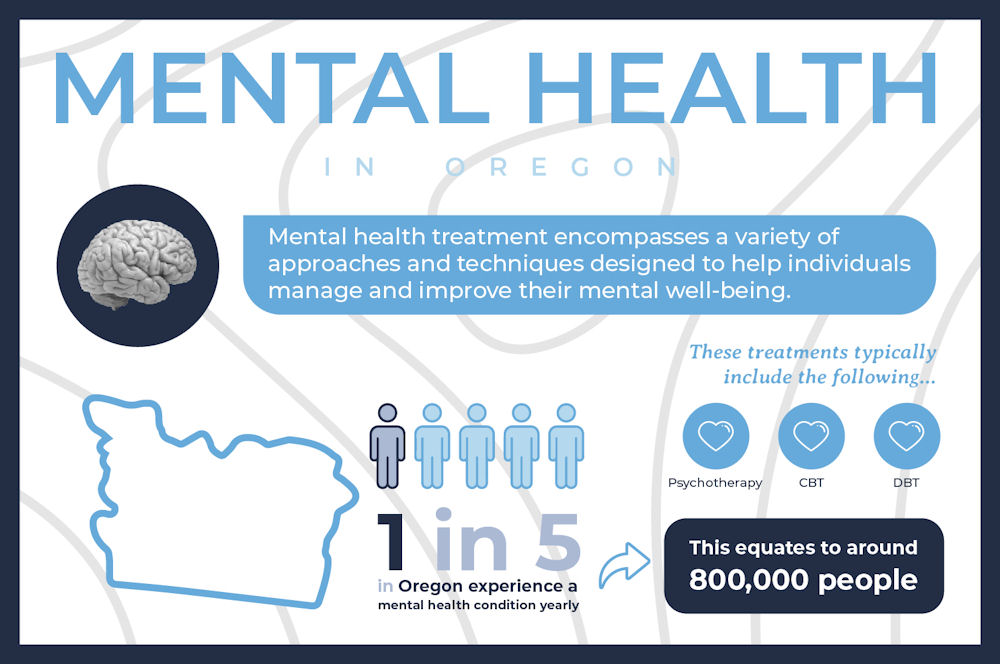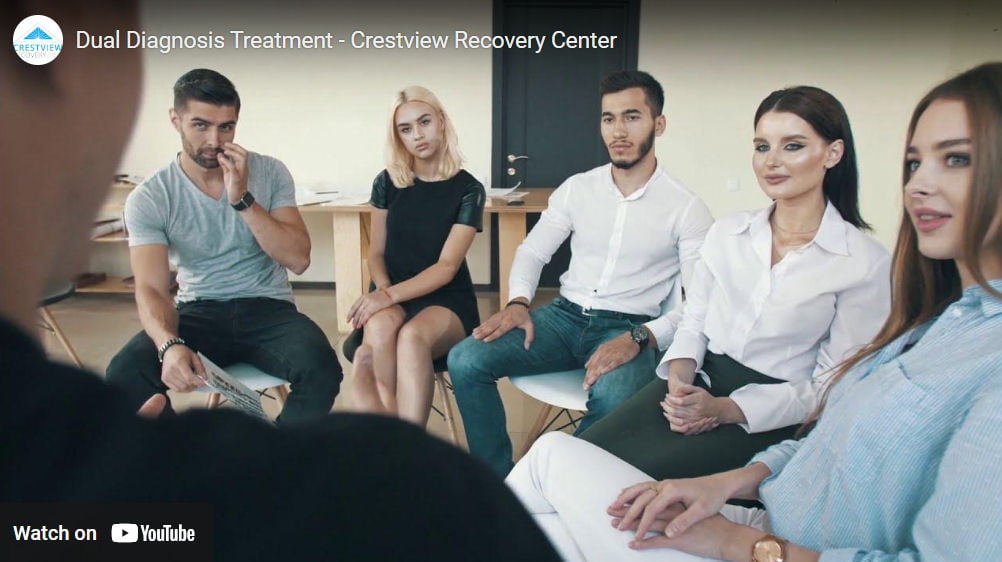If mental illness is hindering you from enjoying experiences and negatively affecting your day-to-day life, our team of therapists at Crestview Recovery offers a fresh, clinical approach to outpatient mental health services. Learn how our mental health treatment in Portland, Oregon can help you.

Healing Begins Here

Mental Health Treatment Services in Portland, Oregon
Our mental health team can help you overcome mental illness and achieve healthy living. Learn how our treatment services can help you or a loved one.
Benefits of Mental Health Treatment in Portland, Oregon
If you do need counseling for substance use disorder, learn about our addiction therapy services in Portland, Oregon.
OUTPATIENT MENTAL HEALTH SERVICES
A few of the treatment programs our therapists offer include:

What is Depression?
Diagnosing depression starts with assessing the client’s mood, behavior, goals, and medical history. A person with diagnosed depression will exhibit five or more symptoms listed in the DSM for at least two weeks, with one of the signs being a sad mood or loss of pleasure.
Symptoms of depression may include the following:
- Sadness
- Loss of enjoyment in favored activities
- Decreased sex drive
- Altered sleep patterns
- Low self-esteem
- Lethargy
- Difficulty focusing
- Suicidal ideations or preoccupation with death
- Physical ailments
Our depression treatment center in Portland, Oregon can help you or a loved one. Don’t wait to seek professional help for any mental health concerns.
WHAT IS BIPOLAR DISORDER?
Bipolar is a mood disorder characterized by manic or hypomanic episodes, which may alternate with bouts of depression. A manic episode is an emotional state characterized by elevated activity, language, and optimism. Hypomania is typically described as a mood or energy state elevated somewhat above the normal range. Each episode normally lasts anywhere from hours or days to months at a time.
Bipolar disorder can cause significant disruptions in a person’s life functioning; however, the illness can often be managed when the therapist has experience treating people with bipolar. At Crestview Recovery, our bipolar treatment specialists have years of experience working with individuals who are struggling with bipolar disorder. Whether it is co-occurring with addiction or the client’s primary concern, we are here to help.
Those with bipolar I have at least one manic or mixed episode. These episodes include:
- Euphoria and increased energy
- Insomnia
- Impulsivity
- Sudden overconfidence
- Racing thoughts and rapid speech
- Increased spending
- Increased sex drive
Bipolar II involves a state of hypomania (less extreme than a full manic episode) with fluctuating states of depression.
Cyclothymia is characterized by rhythms of mild depression and hypomania. The symptoms of depression episodes may include:
- Sadness
- Loss of interest
- Low self-esteem
- Slowed speech and difficulty concentrating
- Lethargy
- Suicidal ideation and preoccupation with death or dying
Mood Disorders And Addiction
Dual diagnosis indicates the presence of a chemical dependency in addition to another psychiatric illness, often a mood disorder. It can be challenging to determine which disorder began first; however, both pose a risk to the other. In other words, a mood disorder could lead a person to self-medicate or use a psychoactive substance as a means of temporarily alleviating physical or emotional distress. Similarly, a person’s abuse of alcohol or other drugs could trigger the onset of a mental health disorder. Both disorders must be treated simultaneously with a therapist for treatment to be effective.

LEVELS OF OUTPATIENT MENTAL HEALTH CARE
If you are new to the behavioral healthcare world, we understand that it can be difficult to figure out exactly what kind of treatment program you need. Inpatient mental healthcare, also known as a residential treatment program, involves 24/7 care in a treatment facility. Partial hospitalization is a step down from inpatient care and involves both medical and psychiatric care. Outpatient mental health and psychiatric care involve daytime mental health programs.
Our outpatient programs at Crestview are designed for people in stable home environments who need assistance with their mental health. We offer the following levels of mental healthcare at Crestview:
- Partial hospitalization
- Intensive Outpatient
- Outpatient mental healthcare
Having an undiagnosed or untreated mental health concern often causes people to withdraw from the social circumstances that aid healing. Recovering in an outpatient mental health setting allows clients to develop an extensive network of family and friends to support their recovery. Clients participating in an intensive outpatient rehab program continue to attend work or school live in their own homes, and attend mental health therapy during the day.
WHAT IS DUAL DIAGNOSIS TREATMENT?
Dual diagnosis treatment is designed for people who are struggling with a mental health concern along with substance use disorder. Our dual diagnosis program in Portland, Oregon is separate from our primary mental health treatment programs and assists clients with skills such as:
- Processing trauma
- Medication management
- Conflict resolution
- Managing anxiety
- Moving through depression
- Balancing moods
- Developing self-awareness
- Building positive relationships
Our mental health treatment programs at Crestview provide education, support, and comfort to our clients throughout the treatment process. Our holistic approach to treatment helps clients find sanctuary from mental illness in a safe environment.

Find a Therapist
Join us at Crestview for outpatient mental health assistance from qualified psychotherapists and counselors. Using constructive, progress-centered methods, a counselor can help you work through your struggles. You can learn helpful coping skills for dealing with stress in the future. Therapy can also provide you with a post-treatment mental healthcare plan.
Start on the Road to Recovery at Crestview Recovery in Portland, Oregon
If you’re ready to start on a new path, our mental health professionals at Crestview Recovery are eager to help. Let the programs at our Portland behavioral health and addiction treatment center guide you toward a sober and independent new start. We offer a range of mental health therapy programs, including:
- Cognitive-behavioral therapy
- Family therapy
- Holistic therapy
- Individual therapy
- Group therapy
Contact us today to find a therapist our counselor and learn more about our life-changing treatment services. Don’t hesitate to get the help you deserve!

 Dual diagnosis treatment
Dual diagnosis treatment Depression treatment
Depression treatment Anxiety treatment
Anxiety treatment Post-traumatic stress disorder treatment
Post-traumatic stress disorder treatment Panic disorder treatment
Panic disorder treatment




















